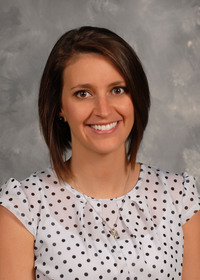Information Possibly Outdated
The information presented on this page was originally released on April 15, 2004. It may not be outdated, but please search our site for more current information. If you plan to quote or reference this information in a publication, please check with the Extension specialist or author before proceeding.
Grower input focuses MSU poultry programs
MISSISSIPPI STATE -- Big business and families don't often go hand-in-hand, but they do when it comes to the Mississippi poultry industry.
"For nine consecutive years, poultry has been the No. 1 commodity in Mississippi, with 2003 sales of poultry and poultry products topping $1.5 billion," said Wallace Morgan, head of Mississippi State University's Department of Poultry Science. "There are about 3,000 farms producing poultry in the state, most of which are family-run farms with four to six poultry houses, with each house producing about 140,000 birds every year."
Providing research and education support for all segments of the industry is a major part of the work of the poultry program at MSU, which includes the poultry science faculty, Extension specialists, and research scientists and technicians with the Mississippi Agricultural and Forestry Experiment Station. An individual often has responsibilities in all three areas.
Because of the nature of the industry, university personnel often make "house calls" when a grower requests help with a particular situation.
"There was an instance last year where a grower thought some of his birds might not be getting an adequate supply of drinking water," Morgan said. "Three of us with Extension responsibilities, including agricultural engineer Jim Thomas, visited the farm and made some suggestions, one of which proved to be an inexpensive method the grower used and, as a result, got better weight gain from his birds."
In addition to inquiries from individual growers, the university personnel receive significant input on research and Extension needs from the Grower Advisory Committee of the Mississippi Poultry Association. Formed in 2000, the committee currently includes 22 growers, who work with integrators and vendors who supply the poultry industry.
"The committee was formed to represent all aspects of Mississippi's poultry industry," said Leslie Threadgill, grower relations coordinator for the Mississippi Poultry Association. "The group meets quarterly and education is one of our main concerns."
By identifying current issues facing growers, the committee can communicate specific needs to university personnel.
"Input from the committee provides input that helps us focus our research and Extension programs and publications on the areas that growers and integrators see as most critical," Morgan said. "It's a way for the university poultry personnel to work directly with all aspects of the industry."
Providing growers with seminars and other educational activities related to management of family-operated poultry enterprises is a priority for the committee. Wayne County grower and Grower Advisory Committee chairman Robert Brannon said recent educational activities have helped with efforts to provide growers with insurance and sales tax exemptions for some of the equipment necessary for poultry operations.
"Several states, including Alabama, have these benefits for growers, and Mississippi State has been helpful in securing information about those programs," Brannon said. "They also recently conducted a seminar on budgeting and provided a computer program growers can use to determine the costs associated with adding new equipment and making other production changes."
Having an active group for poultry producers helps university personnel make their activities more in-tune with what the industry needs, Morgan said.
"The Grower Advisory Committee has really become active during the past year and the input they are providing is helping us focus our Extension programs and experiment station research on the needs of growers," he said. "Their seminars and other activities also provide opportunities to communicate directly with growers."




